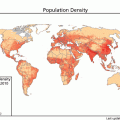Classification: ICD-9 027.0; ICD-10 A 32.1
Syndromes and synonyms: Listeriasis, listerellosis.
Agent: Listeria monocytogenes, a Gram-positive rod-shaped intracellular bacterium. There are at least 13 serotypes, with serotypes 1/2a, 1/2b, and 4b causing most disease. L. ivanovii is a very rare enteric opportunistic human pathogen.
Reservoir: Soil, (decaying) vegetation, and ruminants. Humans and ruminants can carry listeria in their intestines.
Transmission: Food-borne and transplacental (mother to child). Ingestion of L. monocytogenes occurs commonly world wide. Development of the disease depends on the host immunity.
Cycle: Listeria bacteria in the environment or food are ingested by ruminants and humans, colonize the intestine and shed again into the environment with the feces. L. monocytogenes is able to cross the intestinal mucosa under specific conditions, resulting in systemic disease or hematogeneous spread to the central nervous system and, in the case of pregnancy, fetus.
Incubation period: 3 to 70 days, usually about 3 weeks. For gastroenteritis: hours to 10 days with a mean of 24 hours.
Clinical findings
Stay updated, free articles. Join our Telegram channel

Full access? Get Clinical Tree




